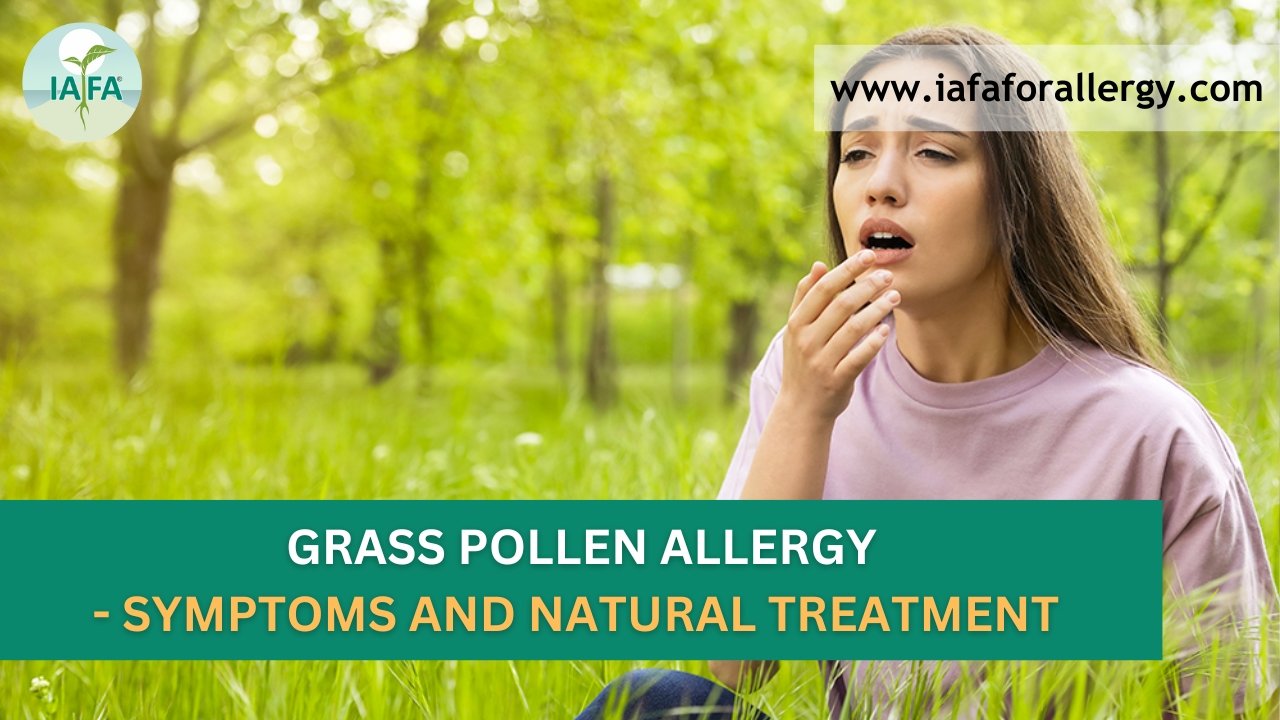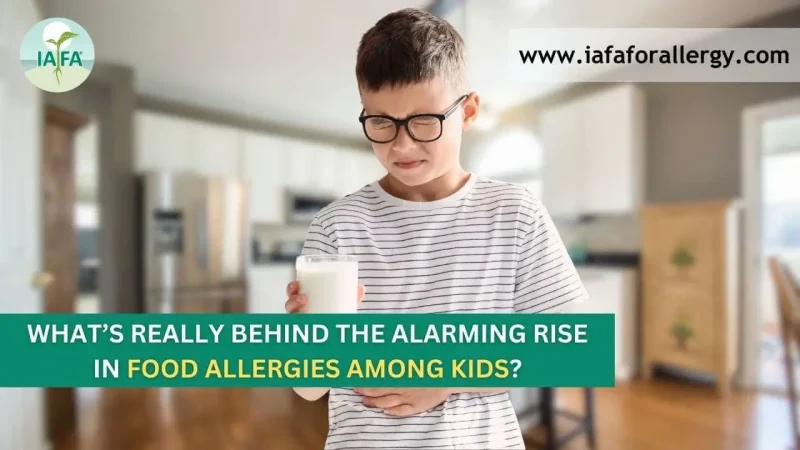Imagine, A peaceful walk in the park causes your eyes to tear and itch, your nose to run and irritation on your overall body, then there is more chance it could be due to the grass pollen allergy from nearby plants. Grass pollen is the most common allergen you can find and around 80-90% of people may be allergic to grass pollen.
What is Grass Pollen Allergy?
Grass pollen allergy, is a common allergic reaction to pollen from grasses. Grass pollen is a fine powder produced by flowering grass plants as part of their reproductive process. When individuals with a grass pollen allergy come into contact with grass pollen, their immune system mistakenly identifies the pollen as a threat and releases histamines and other chemicals, leading to allergy symptoms.
Grass Pollen Allergy often occurs during specific times of the year when grasses release pollen. The timing of grass pollen season can vary depending on the geographic location and the specific types of grasses present. Generally, grass pollen occurs during late spring and early summer.
Type of Grasses that Causes Grass Pollen Allergy
The most common type of Grasses that causes Grass Pollen Allergy are:-
1. Timothy Grass
It is a grass native mainly to Europe and is also cultivated as hay in North America and UK. The grass is one of the worst grass species that causes Timothy Grass Allergy. It may cause Hay fever.
2. Bermuda Grass
It is native to tropical and subtropical nations. This grass releases wind-borne pollen and is responsible for Bermuda Grass Allergy with symptoms of Allergic rhinitis impacting nose, eyes, and throat.
3. Johnson Grass
This grass rapidly produces colonies along with crop plants. If you are allergic, you can have Johnson Grass Allergy which can trigger or produce severe Asthma symptoms like cough and wheezing.
4. Rye Grass
It is native to Europe, and is wind pollinated so releases abundance of pollen. It is severely allergenic that causes Rye Grass Allergy and manifest as hay fever and other respiratory allergies.
5. Bahia Grass
It is commonly grown in America and people who are allergic to grass pollen can have Bahia Grass Allergy with symptoms of Allergic rhinitis, Conjunctivitis, and Asthma.
More grasses that cause grass pollen allergy are Fescue, Orchard, Sweet vernal, Kentucky blue, etc.
What are the Symptoms of Grass Pollen Allergy?
The common symptoms of Grass Pollen Allergy are:-
- Sneezing
- Runny or stuffy nose
- Itchy or watery eyes
- Itchy throat
- Ears itching
- Nasal irritation
- Coughing
- Fatigue
- Hives
- Teary eyes
- Puffy eyes
Also Read:- Natural Treatment for Pollen Allergy – Causes, Symptoms and More
8 Effective Tips to Prevent Grass Pollen Allergy
Follow below given 8 effective tips to prevent Grass Pollen Allergy:-
1. Monitor Pollen Counts
Stay informed about pollen counts in your area. Many weather and allergy websites provide daily pollen forecasts. Try to stay indoors on days when pollen counts are high.
2. Stay Indoors
On days with high pollen counts, especially during peak pollen seasons, try to stay indoors as much as possible. Keep windows and doors closed to prevent pollen from entering your home.
3. Use Air Purifier
Use air purifiers with HEPA filters to filter out pollen and create a pollen-free indoor environment. Make sure to keep windows closed while using air purifiers.
4. Avoid Outdoor Activities
Limit outdoor activities, especially during the early morning and late afternoon when pollen levels are typically higher. If you do need to go outside, consider wearing sunglasses to protect your eyes from pollen exposure.
5. Wear Protective Clothing
When you go outside, wear sunglasses to protect your eyes and a wide-brimmed hat to keep pollen away from your face. Wearing a pollen mask can also help reduce inhalation of pollen particles.
6. Shower and Change Clothes
After spending time outdoors, take a shower to wash off pollen from your body and hair. Change your clothes to prevent pollen from spreading indoors.
7. Avoid Lawn Care
If you’re sensitive to grass pollen, avoid activities like mowing the lawn or gardening during peak pollen seasons. If you must engage in these activities, consider wearing a mask and taking antihistamines beforehand.
8. Use Allergen-Proof Bedding
Use allergen-proof bedding, regularly clean your home, and use HEPA air filters to reduce indoor exposure to pollen.
Final Thoughts
Grass pollen allergy is the most common airborne allergy and can be prevented easily by following effective prevention strategies explained above. Symptoms can be very common and mostly related to your noses, eyes, ears and face and can affect people of any age.
If you’re suffering from any kind of allergy such as Grass Pollen Allergy, Schedule Online Consultation with Ayurvedic Allergy Specialists of IAFA®. We at IAFA® offer safe and effective treatment for all kinds of allergies and is completely safe to use in children also.







